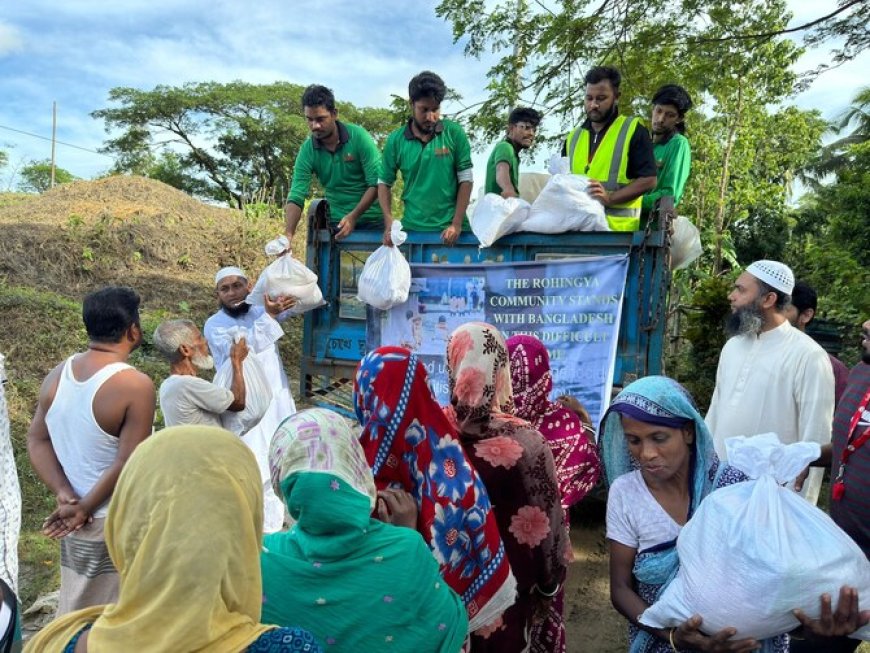Rohingya refugees in Bangladesh have stepped up to assist their host communities amid devastating floods that have swept through the country’s eastern regions. In what has been described as the worst flooding in over 30 years, heavy monsoon rains and water surges from neighboring India have severely impacted 11 districts in southeastern and northeastern Bangladesh since August 20. The floods have claimed at least 59 lives and affected 5.5 million people, leaving more than 1 million families isolated and in urgent need of basic necessities.
In a remarkable act of solidarity, 12 Rohingya refugees from Cox’s Bazar organized emergency aid for 3,000 families in Feni, Cumilla, and Noakhali districts. The relief packages, which included rice, lentils, oil, and medical supplies, were funded through contributions from the Rohingya community members who have been living in refugee camps since fleeing Myanmar in 2017.
Alom Shah, a member of the volunteer group, emphasized the importance of giving back to the Bangladeshis who provided refuge to the Rohingya during their time of need. "We are just representing our Rohingya community," Shah said. "If a friend doesn’t come up in time of need, then they’re not a true friend. Being a part of this relief activity, I feel very proud."
The initiative was particularly poignant given the refugees’ own dependence on humanitarian aid. Yet, as Rohingya activist Sahat Zia Hero explained, the community felt a deep responsibility to support those who had shown them kindness and hospitality. "We may not have the means to provide large donations, but we have big hearts and a deep sense of humanity," Hero said.
Recipients of the aid expressed profound appreciation, noting the significance of receiving help from those who themselves have faced immense hardship. Shohidul Islam, a teacher in Feni, remarked, "It seems that one victim is extending help to another one... Through this initiative of the Rohingya, humanity has won once again."














































